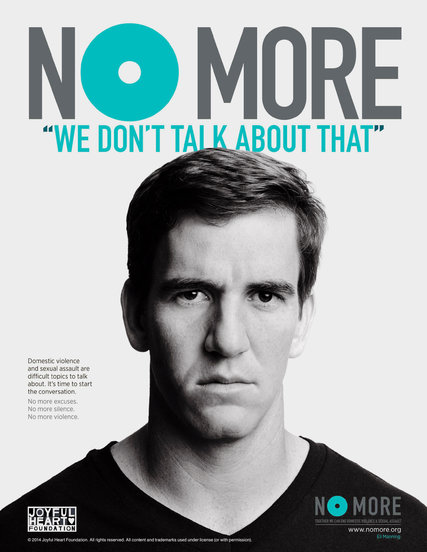This is a guest post by Dr. Hoon Choi, Associate Professor of Theology, Bellarmine University.
As I gaze at the palm leaves around my cross, I am reminded. Not too long ago, we were filled with hope, singing Hosanna, anticipating a great deliverance because we had heard of Jesus’ great miracle stories of healing the sick. We welcomed in an unlikely king from a lowly Nazarene background and received him as our hero because of that anticipation.
How quickly we would forget all that and turn on him when he turned out to be a different kind of a king, the one who came to serve rather than be served (Matthew 20:28) and called on his followers that if they wanted to be first, they must be the very last, and be the servant of all. (Mark 9:35). The Biblical accounts leading up to Easter serve as a sobering reminder in our uncharted lives under Covid-19 threats that we must not forget this: that Jesus who healed us and delivered us from evil is resurrected and found among the “least of us.”
But I must admit that remembering to recognize Jesus when life is “normal” is not easy. I constantly forget when I’m in my comfort and security. I am afraid that when our lives return to some kind of normalcy, that I will forget all that I saw and learned during these times of fear and uncertainty. The Biblical accounts remind us not to forget, not to turn our backs on our heroes, our healers, and the least among us, and to recognize Jesus in them, not only when we are in need but also when we are comfortable.
As a Korean American Catholic person—who frequents the virus-prone hospital for regular treatments in an immunocompromised condition, whose parents-in-law are hospital technicians in New York working full time, and whose pregnant partner had to work all the way up to the last two weeks of her pregnancy in the hospital because the hospital said it needed nurses—I want to offer some distinctive Easter reminders in our stay-at-home, Covid-19 environment, lest we lose sight now and forget when the current threat is all over.
I want to remember that we conveniently recognized grocery/retail workers, gas station attendants, postal/truck/delivery/bus drivers, musicians/artists, hardware store employee, hairdressers, janitors/custodian, personal care aids, first responders, etc. as heroes, HEROES, at our next national discourse about our budgets, taxes, elections, cuts on mandatory spending, etc. We do not need lip service, calling them heroes, that makes us feel good at the (dis)comfort of our sheltered homes, if we can’t show them the money, too. Otherwise, calling them heroes would be patronizing and offensive.
I want to remember that African American bodies are dying of Covid-19 at a disproportionally higher rate compare to others in many states. Meanwhile, notoriously invisible Asian Americans bodies are only becoming visible because we are perceived as a virus-threat; actually we are perceived as THE VIRUS itself, finally getting some media attention but only as a virus. History of Yellow Peril repeats itself. I want to remember that many Asian Americans who live in poverty (the poorest minority group in NYC, for example, are Asian Americans) are hit the hardest by covid-19 yet they are the most invisible group (no media coverage).
I shall neither take “staying home” for granted nor forget that it is a luxury and a privilege. Many people that we are recognizing as heroes do not have a choice to stay home because many of them need to make ends meet to survive, yes to survive. The irony does not escape me. We owe them. Now and when this is all over, I must remember that they risked their lives to protect us and remember that well when bottom line thinking will try to make our heroes expendable.
I want to remember and capitalize on stories of human decency and common good in these trying times and rebuke attempts to capitalize on this situation by trying to figure out how to maximize return or invest on companies related to healthcare or vaccine development. I want to remember the hospital staff (including my parents-in-law and my partner) that they put their lives on the line and rebuke those hospitals that are cutting staff salaries or attempting to squeeze in as many non-essential elective surgeries as possible before it gets worse to offset the money that they’ll be losing. This is not the time to put more healthcare worker in danger, including pregnant nurses and technicians who work in a very close proximity to the patients. As one can imagine, this is a bit personal for me. If I were really honest with myself, I wanted people to stop evaluating my partner’s work as “heroic” and just let her stop going to work because she was 37-weeks pregnant.
It ought not be about protecting the bottom line and precious stocks, but about protecting the most vulnerable, the most burdened. They are often the most affected yet they are also often the ones on the front lines (some are now in the last lines) protecting us right now. If we are not recognizing that now, then when we return to some form of normalcy, we will lose sight of these heroes, that our national short term memory will too at our next appropriation, entitlement programs, budget, and elections discourse. This reflection is meant to serve as a reminder to which we can come back later, lest we forget.
As we await and anticipate Christ’s resurrection, let us remember the least among us, most of whom are hit the hardest as a result of our current crisis. Let us remember that we had turned our backs on them before, yelling “Crucify him! Crucify him!” We are especially prone to repeat our mistakes when we return to the normal daily routines and certainly susceptible to not recognizing our heroes who protected and saved us. If we don’t remember, I fear that we will not recognize the resurrected Jesus even if he were walking right alongside us. He will be invisible and become expendable.
More than ever, we need our Savior resurrected and deliver us from evil. Easter is an opportunity for all of us to renew our baptismal commitment to the very things to which Jesus commanded us for his deliverance: Whatever you did for one of these least of mine, you did for me. But I am afraid that when he comes to save us, we will not only not recognize him at all, but also crucify him again, repeating (Christian) history all over again. Easter is upon us. It is up to us not to turn our backs to our resurrected and incarcerate savior. To do so, we must gaze our vision toward Jesus by recognizing our Nazarene among us in our current crisis and beyond, lest we forget.
“We must never overlook the fact that the message of the Bible is above all a message reached to the poor, the burdened, the oppressed, the underprivileged”
— Thomas Merton
Photo credit: Larry Meyer, USD Founders Chapel




